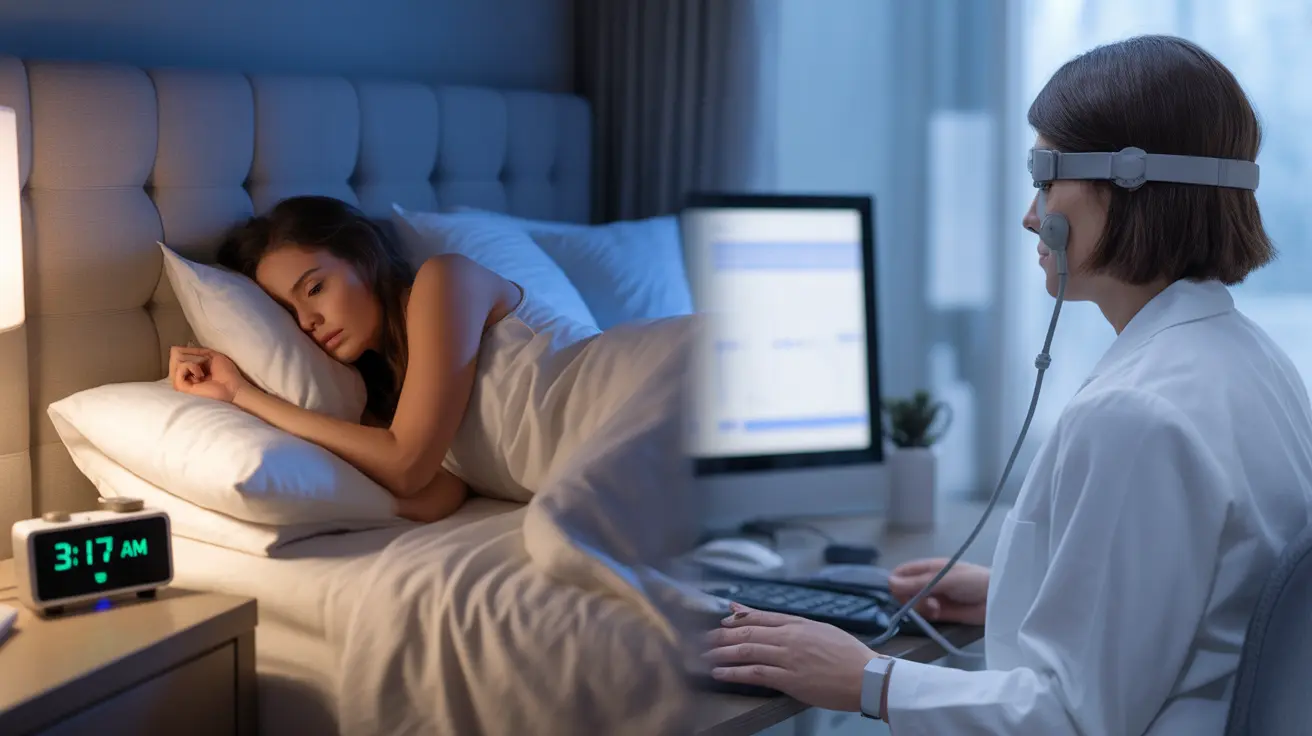Sleep disorders can significantly impact your quality of life, and two of the most common conditions—insomnia and sleep apnea—often get confused with each other. While both affect your ability to get restful sleep, they are distinct conditions with different causes, symptoms, and treatment approaches. Understanding these differences is crucial for getting the right diagnosis and effective treatment.
In this comprehensive guide, we'll explore how insomnia and sleep apnea differ, their unique characteristics, and the most effective treatments for each condition. We'll also examine how these sleep disorders can sometimes overlap and what that means for treatment.
Key Characteristics and Symptoms
Insomnia Symptoms
Insomnia is characterized by difficulty falling asleep, staying asleep, or both. Common symptoms include:
- Lying awake for long periods before falling asleep
- Waking up frequently during the night
- Feeling tired and irritable during the day
- Difficulty concentrating
- Anxiety about sleep
Sleep Apnea Symptoms
Sleep apnea involves repeated breathing interruptions during sleep. Key indicators include:
- Loud snoring
- Gasping or choking during sleep
- Morning headaches
- Excessive daytime sleepiness
- Witnessed breathing pauses during sleep
Diagnostic Approaches
Diagnosing Insomnia
Insomnia diagnosis typically involves:
- Detailed sleep history
- Sleep diary documentation
- Medical history review
- Assessment of lifestyle factors
- Evaluation of psychological factors
Diagnosing Sleep Apnea
Sleep apnea requires more extensive testing, including:
- Overnight sleep study (polysomnography)
- Home sleep apnea testing
- Physical examination
- Assessment of risk factors
- Review of symptoms and medical history
Treatment Options
Treating Insomnia
Insomnia treatment usually focuses on behavioral changes and may include:
- Cognitive behavioral therapy for insomnia (CBT-I)
- Sleep hygiene improvements
- Relaxation techniques
- Prescription medications when necessary
- Lifestyle modifications
Treating Sleep Apnea
Sleep apnea treatment typically involves mechanical intervention:
- CPAP (Continuous Positive Airway Pressure) therapy
- Oral appliances
- Weight management
- Position therapy
- In some cases, surgery
Lifestyle Management and Prevention
Both conditions benefit from lifestyle modifications, but the specific approaches may differ:
- Regular sleep schedule
- Healthy weight maintenance
- Exercise (but not too close to bedtime)
- Avoiding alcohol and caffeine
- Creating an optimal sleep environment
Frequently Asked Questions
What are the main differences between insomnia and sleep apnea symptoms?
The main difference is that insomnia involves difficulty falling or staying asleep, while sleep apnea involves breathing interruptions during sleep. Insomnia sufferers are often aware of their sleep difficulties, while sleep apnea patients may be unaware of their nighttime breathing issues and are often alerted by bed partners.
How is sleep apnea diagnosed compared to insomnia?
Sleep apnea typically requires objective testing through a sleep study (polysomnography) or home sleep test. Insomnia is usually diagnosed through clinical evaluation, sleep diaries, and assessment of symptoms and medical history.
Can a person have both insomnia and sleep apnea at the same time?
Yes, it's possible to have both conditions simultaneously, known as complex sleep apnea syndrome. This combination can make diagnosis and treatment more challenging and may require a comprehensive treatment approach addressing both conditions.
What treatments are effective for insomnia versus sleep apnea?
Insomnia is primarily treated with behavioral therapies like CBT-I and sleep hygiene improvements, while sleep apnea typically requires mechanical intervention such as CPAP therapy. Each condition has distinct treatment protocols based on their different underlying causes.
How do lifestyle factors affect the risk and management of insomnia and sleep apnea?
Lifestyle factors play crucial roles in both conditions. Obesity particularly affects sleep apnea risk, while stress and irregular sleep schedules more commonly impact insomnia. Both conditions benefit from regular exercise, healthy diet, and good sleep hygiene, but the specific emphasis may differ based on the condition.




